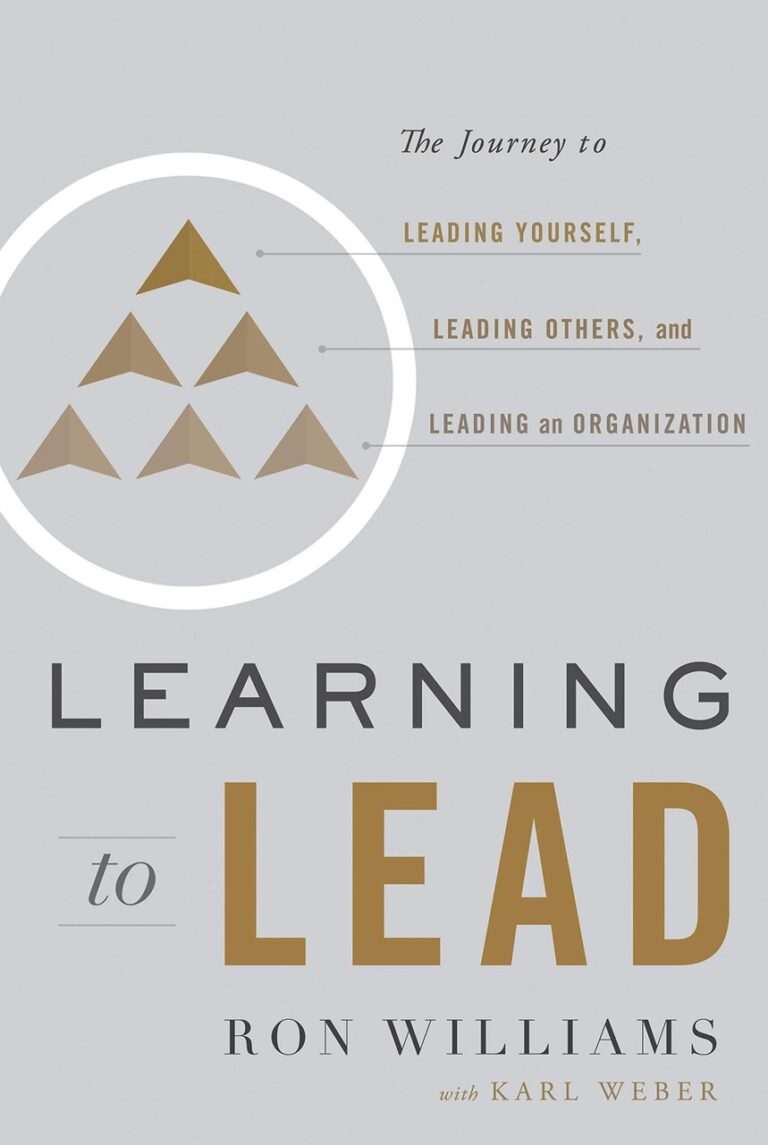In Learning to Lead: The Journey to Leading Yourself, Leading Others, and Leading an Organization, former chairman and CEO of Aetna, Ronald Williams shares his leadership principles for self-leadership, leading a team and leading an organization. Ron Williams is best known for his leadership at Aetna, where he transformed a $292 million operating loss into $2 billion in annual earnings. He serves as chairman & CEO of RW2 Enterprises, director for American Express, Boeing, and Johnson & Johnson. He holds an MS in Management from MIT Sloan School of Management.
Williams grew up in the 1960s in a working-class family in one of the poorer neighbourhoods of Chicago, then one of the most segregated cities in the nation. The cultural, educational, and economic opportunities around him were sparse.
After graduating from high school, he went to Southeast Community College of Chicago, then to Roosevelt University, where he majored in psychology. After a brief stint working in the office of Illinois Governor Richard Ogilvie, Williams launched a business career—first as a consultant, then as an entrepreneur, and then as an executive at Control Data Corporation, Blue Cross of California, and WellPoint Health Networks.
Most people in business are interested in meeting expectations but they’re not interested in meeting demands
Favourite Takeaways: Learning to Lead by Ron Williams
Lessons Learned
Growing into leadership begins with self-leadership—which starts with discovering and nurturing the inner drive that will spur you to seemingly impossible achievements. That drive may be moving toward your passion, if you’re lucky enough to know it. Or it may be moving rapidly away from what you don’t want to do—moving out of the cold and toward the sun.
Turnback Point
I set to work on a master’s degree in clinical psychology, hoping this might open some interesting career doors for me. But when I reached the point in the program when I had to do a one-year, unpaid internship in a mental hospital, I stopped short. I’d been earning money for my work ever since I was thirteen years old, so the notion of working for free simply didn’t compute for me. I like to joke that that was the day I discovered I was a capitalist. I decided to set my sights on the business world instead.
Don’t let other people define who you are, what you can become, or what you can accomplish. Feel free to disregard the familiar assumptions that define the characteristics of a business leader.
Reframing
Reframing is about creating a new mental landscape with a larger scope of freedom, a greater degree of flexibility, and a set alternative ways of approaching any problem—which can often lead to new and unexpected solutions.
Read the life stories of the great innovators of history—scientists and inventors, entrepreneurs and business founders, social reformers and political leaders. You’ll find that many were masters of the art of reframing.
One effective way to improve your talent for reframing is to deliberately open yourself up to new perspectives. Don’t talk only to people from inside your own organization or even from your own industry. Meet, swap ideas with, and learn from people who come from different walks of life and apply quite different perspectives to the challenges and opportunities of life.
Expose yourself to diverse sources of new ideas. And in time, when you become an organizational leader, you can look for opportunities to connect the members of your team to such sources.
Continuous Improvement
During my four years at Control Data Institutes, I took the equivalent of an entire MBA program through Plato Systems—all at no cost to me. I spent four hours every Saturday morning and two hours every Sunday evening in the company’s learning lab, studying the basics of accounting, managerial planning, control, supervision, and many other fundamental business topics. In addition, I took as many instructor-led courses as possible. I had a wonderful time and greatly sharpened my understanding of how companies worked.
On Mentorship
A mentor can be helpful, but I’d advise you not to spend time searching for one. Mentors come along without planning.
Mentorship must arise naturally out of the situation rather than being forced. And above all, don’t think of mentorship as something that someone owes you. You earn mentorship by demonstrating your value and your promise to someone in a position of leadership or authority. They may then choose to mentor you because of what they hope you can bring to the organization. The value and benefits must flow two ways, not one.
The mentor almost always gives more than they receive. Thus, the person who willingly takes on the responsibility of mentorship can be an enormous help to an aspiring leader. But from the mentee’s perspective, there is much to be learned from what I call unofficial mentors—leaders who teach you what to do and what not to do, without being aware that they are doing so.
Suffering is Temporary
Suffering isn’t worthwhile in itself. Not every tough job is guaranteed to be a great learning opportunity. But many are. If the first few days or months of an assignment feel exhausting, overwhelming, or even painful, don’t jump ship. Hang in there. There’s a good chance that one day you’ll look back on that job as the most difficult yet worthwhile growth experience you ever had.
Assume Positive Intent
Assuming positive intent on the part of other people— at least until they provide clear evidence to the contrary—can help you avoid needless conflicts and turn potential adversaries into allies and partners.
When you’re stung by a criticism, remember to assume positive intent. It can help you overcome the emotional reaction, examine the criticism objectively, and derive some educational benefit from it. Remember, the pain you feel when criticized is often a a measurement of how accurate the criticism is.
Injustice is relatively easy to bear; what stings is justice. – H.L. Mencken
On Patience
Building a culture of transparency is difficult—a five-year process, according to most expert estimates. It requires the will to do it and the self-discipline to deal with people consistently.
When a problem arises, resist the temptation to get flustered, lose your temper, or point the finger of blame. Instead, focus on analyzing what has happened and finding a solution. If you behave this way every time bad news arrives, people will eventually realize that you’re sincere about valuing honesty and openness.
Technology is not only a cost, the way a lot of companies view it; it is close to the heart of your competitive strategy.
Listen to many voices.
Before pulling the trigger on a decision, always ask to hear competing arguments. Make sure you’ve given a fair hearing to multiple points of view, from varied levels and organizational functions, rather than relying on a single, potentially biased perspective, or being swayed by a presentation that is glib or emphatic.
Disagree but commit.
When eliciting opinions from the people around you, help them understand that they do not have to agree with every decision—but that once a decision is made, they will be expected to commit to it and implement it as if they fully agree with it.
Leadership is about helping people achieve great things together—and we can’t make that happen if we expend energy on tearing one another down. When you are tempted to personalize a discussion by making a teammate, colleagues, or competitor the focus, rethink your approach. Focus on the issue at hand so everyone can contribute to fixing it.
Action Forcing
The action-forcing event is a bit like a deadline. The major difference is that an action-forcing event involves a deliverable outcome—a concrete, specifically defined work product—whose timing is carefully and thoughtfully planned based on an analysis of the prior step. By contrast, most deadlines are set arbitrarily and with minimal thought, which is why they tend to be missed.
All the best in your quest to get better. Don’t Settle: Live with Passion.



Comments are closed.